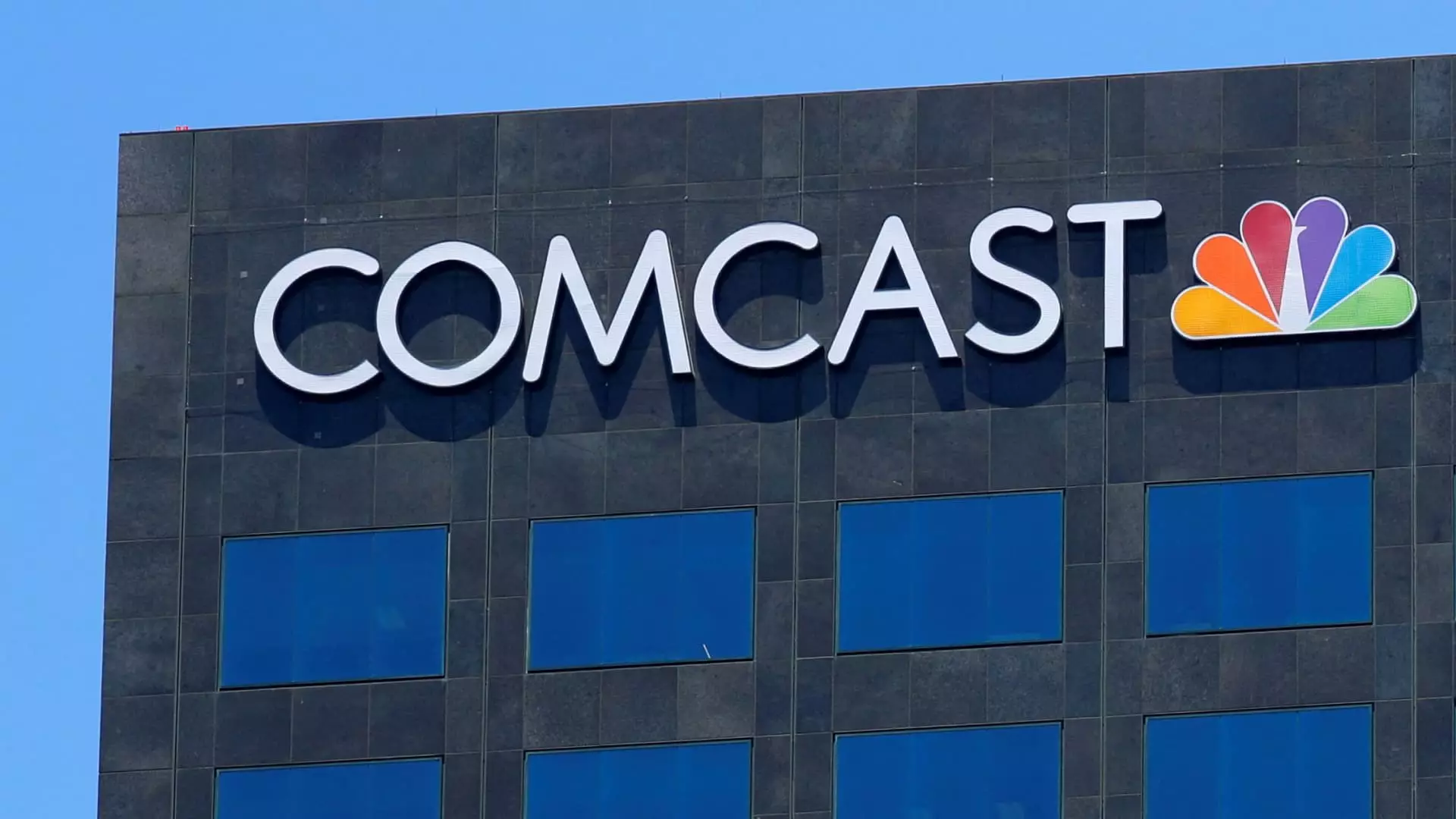In a significant pivot towards a rapidly evolving media environment, Comcast has announced it is moving ahead with the spinoff of its cable network channels. This transformative decision reflects a broader industry trend where traditional media firms are adapting to changing consumption patterns, particularly the increasing preference for streaming services over conventional cable bundles. The decision marks a noteworthy chapter in Comcast’s trajectory as it strives to optimize its operations amidst fierce competition.
Expected to take approximately one year to finalize, the new spinoff will be spearheaded by Mark Lazarus, the current chairman of NBCUniversal’s media group, indicating a continuity of leadership experience guiding the transition. Coupled with this, Anand Kini will assume the roles of Chief Financial Officer and operational chief, ensuring that financial oversight remains robust. While Comcast Chairman and CEO Brian Roberts will retain voting rights, he will step back from operational responsibilities, signaling a possible shift in focus towards a more diversified governance structure for both entities.
The planned separation is not merely a logistical change; it provides Comcast’s cable networks the autonomy to either merge with other entities or potentially engage with private equity firms, enhancing their strategic flexibility. This operational independence may facilitate more aggressive ventures into partnerships, acquisitions, or even outright sales, fostering a dynamic landscape that reflects contemporary media consumption demands.
The spinoff will lead to noteworthy changes in content leadership within NBCUniversal. Notably, Donna Langley will take the helm of NBCUniversal Entertainment and Studios, indicating a sharpening focus on content development as a growth driver. Moreover, Matt Strauss will oversee the newly titled NBCUniversal Media Group, managing vital components such as sports and advertising, essential areas that directly impact revenue streams.
In this intricate restructuring, Cesar Conde will maintain his position at the head of the NBCUniversal News Group, providing continuity in news coverage—an increasingly critical asset in a time where media credibility and swift reporting are paramount. Adam Miller’s appointment as Chief Operating Officer underscores a concentrated effort to streamline operations across different NBCUniversal properties, ensuring cohesive functioning in an increasingly fragmented media landscape.
From a financial standpoint, the spinoff is anticipated to be tax-free, which represents a considerable advantage for shareholders, maintaining their investment’s value. The architecture of the new organization will mimic Comcast’s existing share structure, suggesting a strategic attempt to preserve shareholder interests during this transition. Following the announcement, Comcast’s stock saw a modest increase of over 2% in after-hours trading, indicating positive market reception to the proposed changes.
The cable networks included in this spinoff—such as E!, Syfy, and the USA Network—play a significant role in the overall portfolio of Comcast. Interestingly, Bravo will remain part of NBCUniversal, a strategic decision likely influenced by its substantial presence on the Peacock streaming platform. This approach highlights Comcast’s commitment to nurturing its streaming capabilities while optimizing traditional cable channels in a differentiated corporate entity.
The context surrounding this spinoff cannot be overstated. The phenomenon of “cord cutting” has accelerated, with millions of households moving away from traditional pay-TV bundles in favor of more flexible streaming options. Despite this trend, Comcast’s third-quarter report in October showcased that its media segment still thrived, with revenues surging nearly 37% to $8.23 billion, bolstered significantly by the recent Olympics coverage.
This spike reveals that while some traditional services are waning, others—including live sports and major cultural events—remain lucrative for media conglomerates. However, there remains a pressing need to enhance streaming offerings to align with evolving viewer preferences. Despite the potential impacts of cord-cutting, traditional networks continue to deliver substantial revenue, underscoring their importance as cash cows for companies like Comcast.
Looking Ahead
As Comcast prepares for this spinoff, it underscores a broader narrative in the media landscape where adaptation is crucial. With the cable networks positioning themselves for potential mergers or sales, the adaptability of leadership in responding to industry shifts will undoubtedly play a pivotal role in shaping the future of both Comcast and the newly formed entities. In a world increasingly dominated by digital content consumption, how these networks reinvent themselves and engage with audiences will be integral to their ongoing success. This spinoff could be the first step towards a more innovative, competitive landscape for Comcast and its stakeholders.

